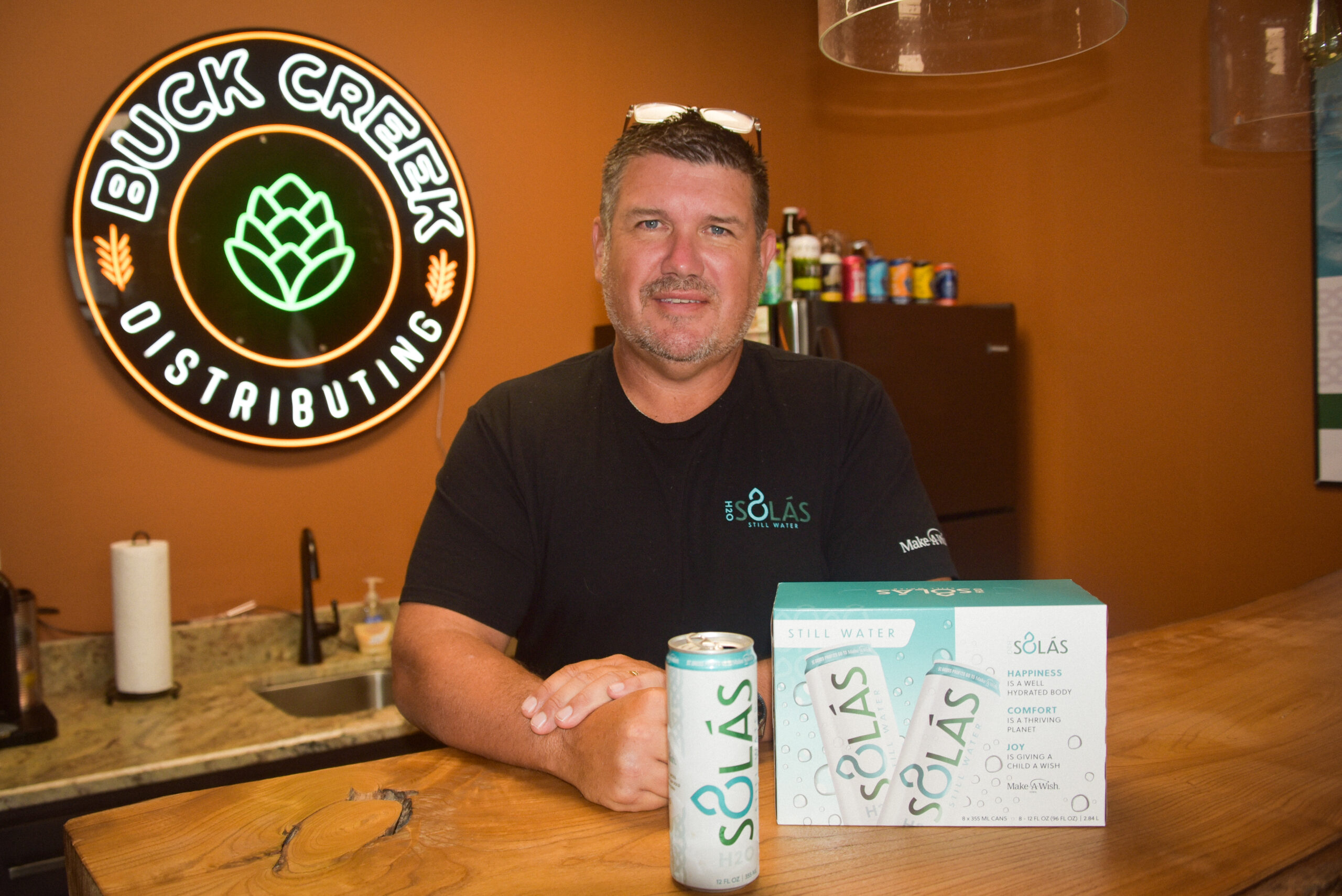
“We’re kind of in the top three of canned water right now,” Mark Pattison said. The market for canned, non-carbonated, unflavored water is a small niche of the overall bottled-water market, estimated at $19.4 billion in 2019 by the International Bottled Water Association. But Mr. Pattison, founder, COO, and board president of Solon-based Buck Creek […]
Want to Read More?
Get immediate, unlimited access to all subscriber content and much more.
Learn more in our subscriber FAQ.
- Unparalleled business coverage of the Iowa City / Cedar Rapids corridor.
- Immediate access to subscriber-only content on our website.
- 26 issues per year delivered digitally, in print or both.
- Support locally owned and operated journalism.
Do you want to read and share this article without a paywall?
Click here to purchase a paywall bypass link“We’re kind of in the top three of canned water right now,” Mark Pattison said.
The market for canned, non-carbonated, unflavored water is a small niche of the overall bottled-water market, estimated at $19.4 billion in 2019 by the International Bottled Water Association. But Mr. Pattison, founder, COO, and board president of Solon-based Buck Creek Distributing, figures he’s ahead of the growth curve.
“We need to move to aluminum because it’s about sustainability,’” he said, holding up a slim 12-ounce can of Buck Creek’s Sólás H2O Still Water. “This is 96% sustainable. A plastic water bottle is four-to-six (percent). It’s not recycled. You’re going to see a ton of products go to alternative packaging over the next five years. It’s already started.”
Besides the environmental benefits, water in an aluminum can chills more quickly and stays cold longer than in plastic, Mr. Pattison said.
“This is a really big deal on the coasts,” he said, adding he got the idea for Sólás only last October, from friends in California.
“They said, ‘You do cans. This whole canned water thing and the elimination of plastics is getting huge on the coast, especially in California. You should think about doing canned water,’” he said.
With most plastic packaging ending up in landfills, and an estimated 8 million tons of it dumped in the world’s oceans every year, managing its environmental impacts is becoming an issue. The sale of single-use plastic bottles was banned at the Los Angeles International Airport June 30, four years after the San Francisco International Airport did the same.
Mr. Pattison has contacts with aluminum-can manufacturers through Buck Creek, which sells cans, ingredients, and other supplies to craft brewers across the Midwest.
“Because we’re in the can business, we can move quickly,” Mr. Pattison said. “And this was an opportunity.”
He located a Pepsi bottler in Yakima, Washington that had surplus canning capacity. Water from the bottler’s private well comes from an aquifer in the Cascade Mountains. It’s filtered through reverse osmosis and treated with ozone gas in a process called ozonation, which eliminates bacteria, viruses and metals.
“There aren’t a ton of plants in the U.S. that have ozonation, and the ones that are, are buried with bottled water,” Mr. Pattison said. “(The Yakima plant) can do 100 eight-packs per minute. We wanted to go with a professional firm that’s FDA-certified. It’s a little bit of trucking expense, but we like them.”
Marketing a retail product amounted to “a big, big learning curve” for Buck Creek, Mr. Pattison said. But he’s “cautiously optimistic” about its early uptake by retailers.
“We only thought of this 10 months ago, and we’re probably in 400 stores in the Midwest,” he said. “We’re currently in seven states, we are in approximately 400 stores. We’re in every Fareway store. We’re probably in 100-plus Hy-Vees.”
“Solas” means happiness, joy, and comfort in Celtic, qualities Mr. Pattison ties in with the Make-A-Wish Foundation, which receives 5% of its gross sales.
Early marketing included social media and sales or giveaways at Midwest music festivals and this year’s sweltering RAGBRAI bike ride across Iowa, supplemented by a modest TV ad buy.
“These things don’t happen overnight, because there’s a lot of consumer confusion,” Mr. Pattison said. “We’re not sparkling, we’re not carbonated, we’re not flavored. We’re just plain water. Our goal is to replace the plastic water bottle, and hit the majority of the population.”
With a background in real estate development, Mr. Pattison, 50, launched Buck Creek Distributing in 2019 to sell hops he grew near Solon and processed himself. He estimates sales at $4 million to $5 million this year.
“There was an unmet need in craft brewing, of customer service on raw materials, because it was just growing so fast,” he said of the region’s craft brewers. “There’s only a couple of players in the market that have most of the market share nationally, so it’s a huge niche.”
Buck Creek offers more than 750 products, including malt, hops, flavoring adjuncts, and packaging. Its staff of eight serves brewers from Michigan to Nebraska, with two employees stationed in Chicago. The small workforce is one of Buck Creek’s advantages.
“It’s customer service, that in-person touch,” he said. “With our two competitors, (customers) call a customer-service rep on the phone and place an order. We have actual sales reps. We’re very high-touch.”